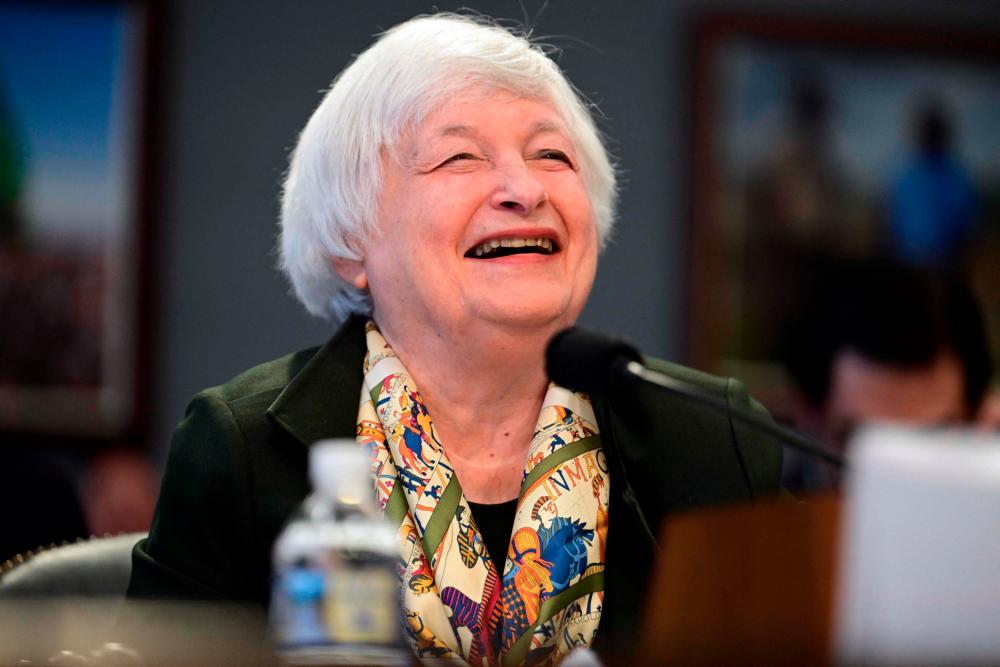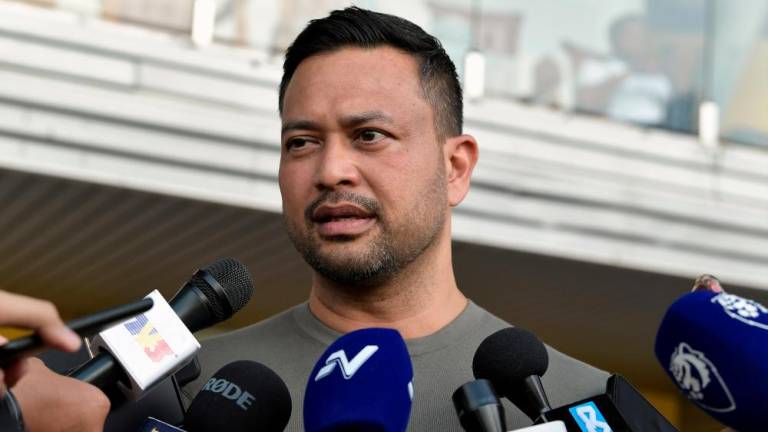WASHINGTON: US Treasury Secretary Janet Yellen sought to reassure jittery investors that American bank deposits were safe and promised policymakers had more firepower to battle any crisis even as bank stocks resumed their slide on Thursday (March 23).
Investors have dumped banking stocks globally over the past two weeks, with rapid interest rate increases to rein in inflation blamed by some as the root cause of the debacle. US bank stocks slid again on Thursday, pushing the S&P 500 banks index down to its lowest close since November 2020.
US lender Silicon Valley Bank’s (SVB) collapse over bond-related losses tied to a surge in interest rates was the initial trigger for the turmoil, and JPMorgan Chase & Co analysts estimate the “most vulnerable” US banks likely lost a total of about US$1 trillion (RM4.4 trillion) in deposits since last year. Half of the outflows occurred in March after SVB’s collapse, they said.
Policymakers have stressed the turmoil is different from the financial crisis 15 years ago, and Yellen repeated that she was prepared to take more action to protect bank deposits if needed - one of the issues investors are concerned about.
“As I have said, we have used important tools to act quickly to prevent contagion. And they are tools we could use again,” Yellen said in prepared remarks to the US House of Representatives Appropriations subcommittee hearing.
“The strong actions we have taken ensure that Americans’ deposits are safe. Certainly, we would be prepared to take additional actions if warranted.”
While some of the panic over the fate of banks has abated, investors are now adjusting to more challenging economic and lending conditions ahead.
The index of top European banks fell 2.5%, with German banking giants Deutsche Bank and Commerzbank falling 3.2% and 4.1%, respectively. London-headquartered HSBC dropped 2.9%.
US banking shares initially rose on Thursday with traders citing the Fed’s hints that it could soon pause further increases in borrowing costs as a source of some relief, but later turned negative.
Troubled US regional lender First Republic Bank, which is among banks speaking to peers and investment firms about potential deals, closed down 6%. About 90% of the bank’s stock market value has evaporated this month, leaving it with a market capitalisation of just over US$2 billion.
“Despite the strong efforts to protect, particularly First Republic, the crisis continues and investors are left wondering what is it that I’m not seeing,” said Rick Meckler, partner at Cherry Lane Investments in New Vernon, New Jersey.
Other US banks under the microscope after the demise of SVB and Signature Bank added to recent losses. PacWest Bancorp, Comerica and Zion Bancorp each tumbled more than 8%.
Truist Securities cut its price targets on regional banks including Zions and Comerica, warning of slower growth and higher credit costs.
The S&P 500 banks index, which closed down 1.2%, has now fallen over 40% from its record high in February 2022.
On the broader state of the US economy, Yellen said the labour market was “extremely tight:, which was contributing to inflation.
However, she also added that supply chain pressures and shipping costs were coming down and were eventually likely to bring down inflation.
Separately on the issue of the debt ceiling, the Treasury secretary said that a US debt default would undermine the dollar’s reserve currency status and that a failure to raise the debt ceiling would lead to a recession or worse.
Yellen also told lawmakers Russia and China have the motivation to try to develop an alternative to the US dollar but it would be “tremendously difficult” for them to do so.
“I certainly want to see the dollar remain as the world’s reserve currency and there is a motivation that Russia and China have to try to develop another system that avoids the use of the dollar,” she said. – Reuters














